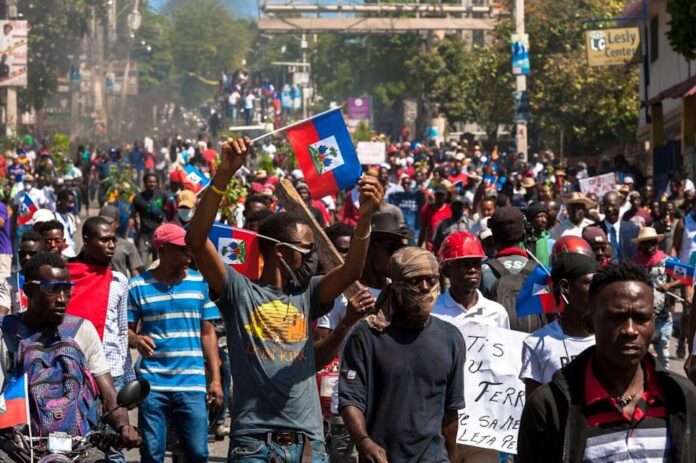Jacob Davis
CSMS Magazine
Insecurity in Haiti is a multifaceted challenge that permeates various aspects of daily life, hindering progress and stability in this Caribbean nation. While the country boasts a rich cultural heritage and resilient spirit, it grapples with a range of issues contributing to its complex security landscape.
One of the primary sources of insecurity in Haiti is economic instability. The nation faces persistent poverty, high unemployment rates, and economic inequality. These factors create an environment where many struggle to meet their basic needs, leading to social unrest and an increased risk of crime. The lack of economic opportunities fuels a cycle of poverty, leaving a significant portion of the population vulnerable to exploitation and desperation.
Political instability is another critical dimension of insecurity in Haiti. The country has faced a series of political crises, with frequent changes in leadership and a history of coups and political turmoil. This volatility undermines the development of stable institutions and contributes to a sense of insecurity among the population. The absence of effective governance mechanisms hinders the implementation of long-term solutions to address the root causes of insecurity.
In addition to economic and political challenges, environmental factors exacerbate insecurity in Haiti. The nation is prone to natural disasters, including hurricanes, earthquakes, and flooding. The aftermath of such disasters often leads to displacement, loss of livelihoods, and increased vulnerability. Rebuilding efforts are impeded by a lack of resources and a weakened infrastructure, leaving communities susceptible to ongoing threats.
Crime and violence represent significant manifestations of insecurity in Haiti. Gang-related activities, in particular, have escalated, posing a considerable threat to public safety. The proliferation of armed groups, often fueled by socio-economic grievances, exacerbates the sense of insecurity. Kidnappings for ransom have become a pervasive issue, affecting both locals and foreigners and perpetuating an environment of fear.
Addressing insecurity in Haiti requires a comprehensive and collaborative approach. Efforts to strengthen the economy, reduce poverty, and create job opportunities are fundamental to breaking the cycle of insecurity rooted in economic instability. Moreover, establishing and maintaining political stability is crucial for building resilient institutions that can effectively address the nation’s challenges.
Investing in disaster preparedness and response mechanisms is essential to mitigate the impact of natural disasters. This includes fortifying infrastructure, improving early warning systems, and enhancing community resilience to reduce the vulnerability of populations in the face of environmental threats.
Tackling crime and violence necessitates a combination of law enforcement measures and socio-economic interventions. Community-based programs that address the root causes of gang involvement, coupled with strategic law enforcement initiatives, can contribute to a safer environment. International cooperation and support are vital to bolstering Haiti’s capacity to address security challenges effectively.
In conclusion, insecurity in Haiti is a complex issue intertwined with economic, political, environmental, and social factors. Addressing these challenges requires a coordinated and sustained effort from both domestic and international stakeholders. By investing in long-term solutions and fostering resilience, Haiti can overcome the layers of insecurity that hinder its progress and build a more stable and prosperous future.
Note: Jacob Davis is editor at large for CSMS Magazine. He also writes on sociopolitical issues.


